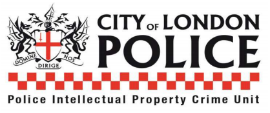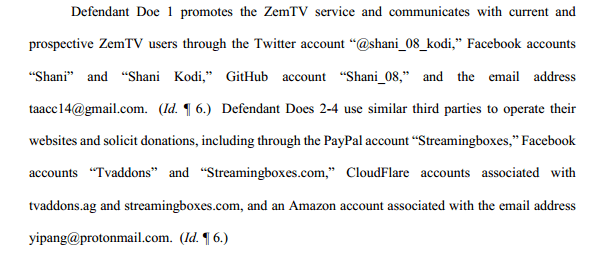Three Men Sentenced Following £2.5m Internet Piracy Case
jeudi 22 juin 2017 à 09:25 While legal action against low-level individual file-sharers is extremely rare in the UK, the country continues to pose a risk for those engaged in larger-scale infringement.
While legal action against low-level individual file-sharers is extremely rare in the UK, the country continues to pose a risk for those engaged in larger-scale infringement.
That is largely due to the activities of the Police Intellectual Property Crime Unit and private anti-piracy outfits such as the Federation Against Copyright Theft (FACT). Investigations are often a joint effort which can take many years to complete, but the outcomes can often involve criminal sentences.
That was the profile of another Internet piracy case that concluded in London this week. It involved three men from the UK, Eric Brooks, 43, from Bolton, Mark Valentine, 44, from Manchester, and Craig Lloyd, 33, from Wolverhampton.
The case began when FACT became aware of potentially infringing activity back in February 2011. The anti-piracy group then investigated for more than a year before handing the case to police in March 2012.
On July 4, 2012, officers from City of London Police arrested Eric Brooks’ at his home in Bolton following a joint raid with FACT. Computer equipment was seized containing evidence that Brooks had been running a Netherlands-based server hosting more than £100,000 worth of pirated films, music, games, software and ebooks.
According to police, a spreadsheet on Brooks’ computer revealed he had hundreds of paying customers, all recruited from online forums. Using PayPal or utilizing bank transfers, each paid money to access the server. Police mentioned no group or site names in information released this week.
“Enquiries with PayPal later revealed that [Brooks] had made in excess of £500,000 in the last eight years from his criminal business and had in turn defrauded the film and TV industry alone of more than £2.5 million,” police said.
“As his criminal enterprise affected not only the film and TV but the wider entertainment industry including music, games, books and software it is thought that he cost the wider industry an amount much higher than £2.5 million.”
On the same day police arrested Brooks, Mark Valentine’s home in Manchester had a similar unwelcome visit. A day later, Craig Lloyd’s home in Wolverhampton become the third target for police.
Computer equipment was seized from both addresses which revealed that the pair had been paying for access to Brooks’ servers in order to service their own customers.
“They too had used PayPal as a means of taking payment and had earned thousands of pounds from their criminal actions; Valentine gaining £34,000 and Lloyd making over £70,000,” police revealed.
But after raiding the trio in 2012, it took more than four years to charge the men. In a feature common to many FACT cases, all three were charged with Conspiracy to Defraud rather than copyright infringement offenses. All three men pleaded guilty before trial.
On Monday, the men were sentenced at Inner London Crown Court. Brooks was sentenced to 24 months in prison, suspended for 12 months and ordered to complete 140 hours of unpaid work.
Valentine and Lloyd were each given 18 months in prison, suspended for 12 months. Each was ordered to complete 80 hours unpaid work.
Detective Constable Chris Glover, who led the investigation for the City of London Police, welcomed the sentencing.
“The success of this investigation is a result of co-ordinated joint working between the City of London Police and FACT. Brooks, Valentine and Lloyd all thought that they were operating under the radar and doing something which they thought was beyond the controls of law enforcement,” Glover said.
“Brooks, Valentine and Lloyd will now have time in prison to reflect on their actions and the result should act as deterrent for anyone else who is enticed by abusing the internet to the detriment of the entertainment industry.”
While even suspended sentences are a serious matter, none of the men will see the inside of a cell if they meet the conditions of their sentence for the next 12 months. For a case lasting four years involving such large sums of money, that is probably a disappointing result for FACT and the police.
Nevertheless, the men won’t be allowed to enjoy the financial proceeds of their piracy, if indeed any money is left. City of London Police say the trio will be subject to a future confiscation hearing to seize any proceeds of crime.
Source: TF, for the latest info on copyright, file-sharing, torrent sites and ANONYMOUS VPN services.

 Earlier this month we broke the news that third-party Kodi add-on ZemTV and the TVAddons library were being sued in a federal court in Texas.
Earlier this month we broke the news that third-party Kodi add-on ZemTV and the TVAddons library were being sued in a federal court in Texas.



 For more than a decade copyright holders have been sending ISPs takedown notices to alert them that their subscribers are sharing copyrighted material.
For more than a decade copyright holders have been sending ISPs takedown notices to alert them that their subscribers are sharing copyrighted material.